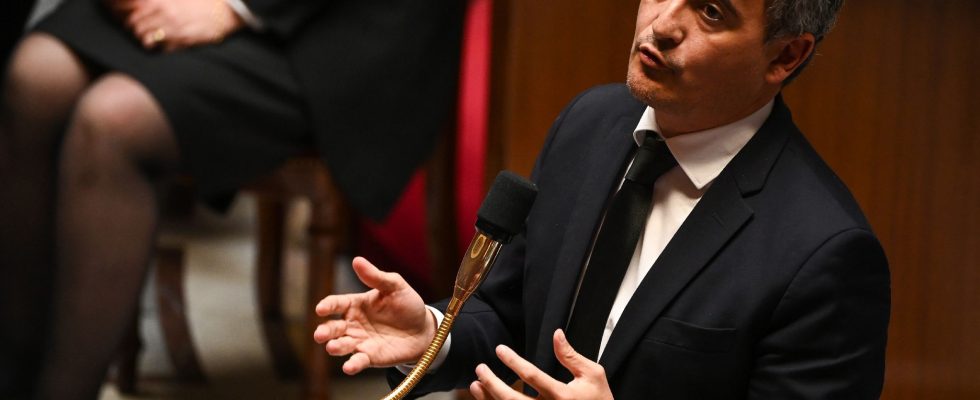This is the strong text supported and desired by Gérald Darmanin. From this Monday, November 6, the immigration bill is being examined, which was originally intended to be the response to “control immigration” and “improve integration”, as it was presented to the Council of Ministers. last February. The debates will first take place in the Senate, where the text was adopted in the law committee last March. A look back at the main planned measures which will be discussed in the hemicycle.
A tightening of removal measures
Removing brakes on expulsions: this is the objective of articles 9 and 10, which provide for making it simpler to execute obligations to leave the territory (OQTF). If adopted, the legislation would notably make it possible to extend them to foreigners who arrived in France before the age of 13 or even to those residing in France for more than ten years, and in broader cases, “in the event of behavior seriously threatening the ‘public order’ or domestic violence.
To promote removal, the senators also added to the bill coercive diplomatic measures towards countries refusing to take back their nationals affected by an OQTF, such as the possibility of acting on development aid or reducing the allocation visas.
Obtaining residence permits subject to mastery of French
This is article 1 of the text. The bill plans to make the issue of a residence permit conditional on a minimum level of proficiency in French. To this new requirement, the senators added in the text the need to carry out a civic exam, with questions relating to French culture and history.
Residence permits could also be withdrawn for non-compliance with the “principles of the Republic”, of which there are six in the text, such as freedom of expression, equality between men and women, the dignity of the human person or even respect for secularism.
Regularizations in professions in tension
This is the main point of contention in the bill. Article 3 provides for the creation of a one-year residence permit for foreign workers in an irregular situation in sectors under pressure, such as construction or catering.
This subject will have set the majority on fire, between a left wing which has made this integration measure an essential totem for them to vote for the bill, and a right wing led by Gérald Darmanin ready to do so. renounce, in particular to glean the support of the LR. The latter have assured it, whether in the Senate or the National Assembly: they will not vote for the law if article 3 remains as is. During the examination in committee, the senators did not wish to amend this article, keeping the debates for public discussion, which already promises to be very tense.
Article 4 of the bill, if adopted, provides that certain asylum seekers, coming from the most at-risk countries, can directly access the job market, against a wait of at least six months after introduction. of their request currently. A measure to which the Republicans also radically oppose.
The transformation of state medical aid into emergency medical aid
This measure, added to the text by the right-wing senatorial majority, aims to replace state medical aid (AME), allowing foreigners in an irregular situation to benefit from access to care, in “emergency medical aid”, with much stricter access conditions.
If this measure is far from being supported by the entire presidential majority, including the government, Gérald Darmanin declared himself in favor of it personally. “I will endorse the Senate’s modifications,” he declared on October 18 during questions to the government, confirming that he validated the senatorial amendment.
An annual debate on immigration quotas
This addition of the senatorial right to the text, supported by Gérald Darmanin, should provide for the holding of an annual debate on immigration in Parliament. This would make it possible in particular to set the quotas of people admitted to stay in France by residence permit for three years, excluding the right to asylum and family reunification.
